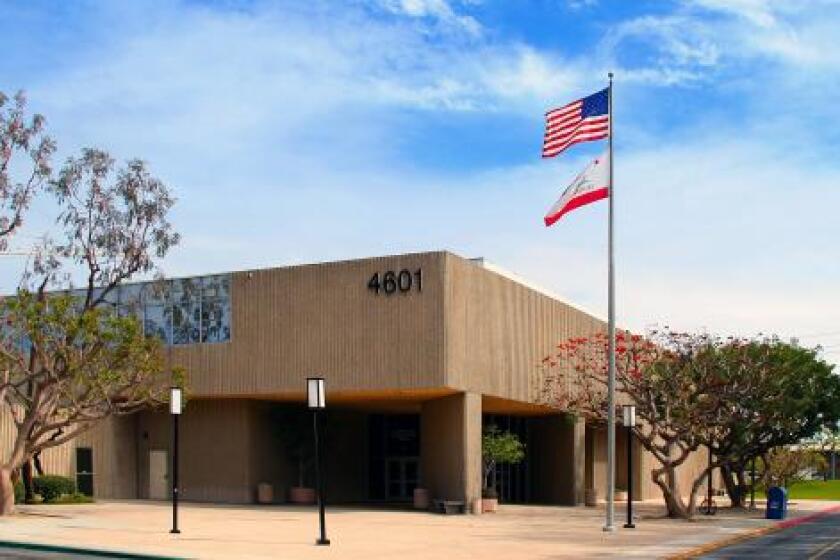Religious symbols sacred
- Share via
I consider the use of religious symbols for nonreligious purposes
highly offensive. The commercialization, trivialization and
desecration seem to extend to all faith traditions.
Pop Zen is used to sell products from perfume to cereal to
architectural services. In our neighborhood, we find “Trader Zen”
cleaning products, a “Zen Sushi” restaurant and a “Zen Care” health
center. The newly opened “Sutra” restaurant describes itself as a
“Tantric” dining experience, and uses a logo on its canopies with
Ganeesh (from the Hindu tradition) along with a famous Quan Yin
reproduction (from the Buddhist tradition) behind the reservation
desk. “Sutra” means scripture or sacred text in our Buddhist
tradition.
Religion as decor is nothing new. I recall an article about a
prominent Chicago art collector credited with an exceptional range of
multicultural objects in her home. She mentioned how convenient it
was to use her Buddha sculpture as a place to hang her necklaces.
When I traveled in Thailand, I brought credentials from our Zen
Center in order to purchase Buddhist items. In Thailand, sculptures
of the Buddha cannot be sold to tourists, because Thai people are
offended by their use as doorstops and table lamps.
I knew of a Zen teacher in San Francisco who “rescued” Buddhas
from antique shops and offered them to Buddhist Centers and places
where they would be used as intended -- to inspire and strengthen
those walking the path of the Buddha.
It is disturbing when people are attracted to religious symbols at
superficial levels, but are unaware or insensitive to their deeper
meanings and potential.
REV. DR. DEBORAH BARRETT
Zen Center of Orange County
Costa Mesa
Misuses of the cross and other cherished religious symbols abound
in our world, because we do not understand their meanings. Rabbi
Miller told a wonderful story of mistaken use of the Star of David by
an athletic “star” whose name is “David” in this space last week.
There are many, many stories I could tell of Jesus’ cross being
misused because it is misunderstood. A favorite is from “Racing
Demon,” a play by David Hare about four priests in the Church of
England and their struggle in faith. One tells the others a story of
his first trip to London, when he was only 16: “I was incredibly
lonely, I was thinking ‘All right, I’m frightened; I’m on my own.
What could help would be if I could buy a small crucifix. There was a
gift shop, and I talked with a girl behind the counter. ‘Oh, I don’t
think you’ll want this one,’ she said. ‘It’s got a little man on
it!’”
Too many people don’t know the story of that “little man” on the
cross and what is represented by it and by other great religious
symbols -- constant love in the heart of God! Perhaps we’d rather not
know, and so we avoid the painful and joyful discovery that we are
terribly loved and we refuse the challenge to love ourselves and
others.
To a world in which so much is “tasteless and offensive,” how
would Jesus respond to this misunderstanding and misrepresentation of
his cross? I suspect with his words from his real cross, given to us
in Luke 23:34: “Forgive them, for they do not understand what they
are doing!”
THE VERY REV’D CANON
PETER D. HAYNES
St. Michael & All Angels
Episcopal Church
Corona del Mar
When Michael Jackson sold Nike the right to use the John Lennon
song “Revolution” in its advertising campaigns, I joined virtually
all Beatle fans in condemning this debasing of meaning. The theme of
the song was so obviously ill suited for the message of the
commercials. I also object to the misuse of the American flag as a
design for underwear -- it is not only cheesy and tacky, but also
disrespectful.
If I oppose the exploitation of a cultural icon like a treasured
song to sell shoes, or the symbol of our nation to sell briefs, how
much the more would I contend against the exploitation of a
profoundly religious symbol? Associating the cross with an
inappropriate venue like a nightclub is worse than smarmy -- it is
offensive.
A symbol is a powerful condensation of meaning. A symbol is a
visible sign of an invisible reality. It bespeaks common experiences
and evokes deepest memories. I can appreciate the revulsion,
experienced by those who hold the cross to be sacred, when they
behold this symbol of suffering and redemption, of bearing a burden
and offering a sacrifice, degraded as a vehicle to attract revelers.
I can imagine how a Christian feels when seeing the cross
incinerated by the KKK as part of its repertoire of terror, or when
the cross is satirized and mocked in so-called “comedies” on stage
and screen. Its use -- or better, abuse -- by a Scottish “hotspot”
perverts the meaning of this ancient symbol. The cross gives meaning
to many people’s lives and it should not be publicly trivialized for
commercial purposes. What a better world it would be if we all
treated one another’s cherished symbols with respect.
The cross should arouse the spirit of the believer and not be
employed to sell spirits to the carouser.
RABBI MARK S. MILLER
Temple Bat Yam
Newport Beach
It is highly inappropriate to use a religious symbol other than
for its intended meaning. The Christian cross symbolizes a spiritual
message, an invitation to God, not an invitation to a nightclub.
Establishments that are in the business of entertainment should name
their operation accordingly and should not use religious symbols in
vain or mockery.
IMAM SAYED MOUSTAFA
AL-QAZWINI
Islamic Educational Center of
Orange County
Costa Mesa
All the latest on Orange County from Orange County.
Get our free TimesOC newsletter.
You may occasionally receive promotional content from the Daily Pilot.



